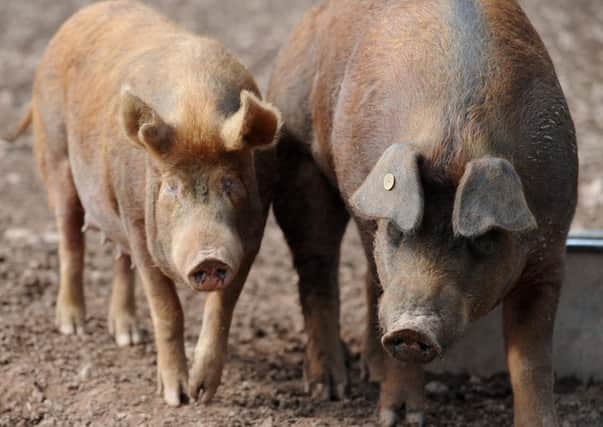Post-Brexit trade deals a mixed bag for farming sectors


In a major report into the impacts of alternative post-Brexit trade agreements on UK agriculture, published by the Food & Agricultural Policy Research Institute (FAPRI) UK, the effects of three different outcomes were used to model the likely consequences for the various sectors.
• READ MORE: Farming news
The report found that, operating closest to world market prices, the grain sector was likely to be the least prone to fluctuations due to the trade deal negotiations – with any drops in output due to this factor likely to fall within the 5 to 10 per cent bracket, regardless of the deal brokered.
Advertisement
Hide AdAdvertisement
Hide AdThe beef and dairy had the most at stake over the type of agreement which was finally adopted – with a reversion to World Trade Organisation (WTO) default “most favoured nation” (MFN) tariff rules offering possible increases in output from the national herds of over 30 per cent, due mainly to considerable opportunities for import substitution.
Pigs and poultry could gain similar benefits under such a scenario – but the sheep sector, with its heavy reliance on exports to the EU, could see output drop by more than a third under WTO MFN rules.
However, if the UK government decided to take up a policy of unilateral trade liberalisation – which would allow the importation of cheap food – the report indicated that this could see productivity and incomes in the beef and sheep sectors in particular slashed to almost half their current levels, while the pig, poultry and dairy sectors would also suffer reductions.
• READ MORE: Brexit could be a mixed blessing for potato sector
The FAPRI study showed that a bespoke “business as usual” agreement with the EU, which would allow frictionless trade to continue with the bloc, would cause the least disruption – but there would still be additional costs for all sectors such as the import and export checks, delays and extra paperwork and administrations costs which were likely to be incurred.
The report’s authors said that with the Brexit negotiations in their early stages, the findings could only indicate the broad directions of change, and the outcome was likely to be a hybrid of several options.
The Scottish Government said that the study confirmed that the interests of Scotland’s rural communities were best served by Scotland remaining within the EU.
Advertisement
Hide AdAdvertisement
Hide Ad“This report clearly shows that failure to reach a deal with the EU, combined with taking a complete free trade approach, would disrupt every single sector of agriculture, with beef production in Scotland particularly affected,” said rural economy secretary, Fergus Ewing.
He added that even under the best case scenario, where the UK government secured a trade deal with the EU on close to single market terms, both farmers and consumers would still be worse off.
“Walking away from the EU with no deal would be disastrous,” said Ewing.
Union aware of Brexit fall-out
NFU Scotland president Andrew McCornick said the union was acutely aware of the implications of Brexit for the industry – and was currently in the middle of wide-ranging discussion with its members over what policies and support would be needed in the years ahead.
He said it was abundantly clear that there must be no “Brexit cliff edge” for Scottish agricultural businesses.
“The importance of a phased transition to new arrangements is recognised in the scenarios included in the research issued today – and in the trading proposals unveiled by the UK government yesterday,” said McCornick.
He said a phased transition which opened with unfetterd access to EU markets was necessary to offer certainty and stability in the short to medium term.
“And such arrangements must be in position for the full duration of negotiations and until a trade agreement between the UK and the EU is in place.”
Advertisement
Hide AdAdvertisement
Hide AdHowever, he warned that UK negotiators should not underestimate the challenge which lay ahead in reaching such a deal with the EU.
“A new customs agreement between the EU and the UK needs to cover 100 per cent of goods and avoid lengthy delays at UK-EU borders.
“This is no small task but NFUS is clear that any outcome that imposes tariffs could be catastrophic for parts of Scottish agriculture – the sheep sector in particular.”
McCornick said the union would be looking closely at the UK government’s white papers on trade and customs, due to be released in the autumn.